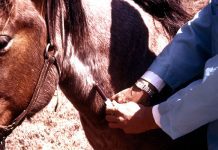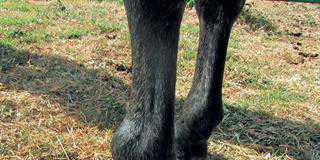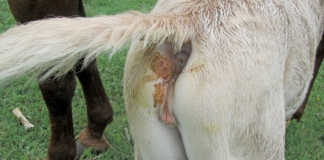
The glorious rain that fell recently has brought skin conditions to the fore, specifically sweet itch and ringworm. Sweet itch occurs mainly in warmer weather. It’s not contagious and some horses are more prone to it than others are.
Its technical name is Culicoides hypersensitivity, as the allergic reaction is believed to be caused by the saliva of the tiny sand fly – a biting midge of the Culicoides genus. But I have found that sweet itch (or summer itch, as it’s also known), can occur as a result of any allergic reaction.
An affected horse will itch everywhere and try to rub or bite its ears, mane, withers and tail. If you ignore the condition, the skin will become thicker, wrinkled and discoloured with very little hair cover.
Using insect repellents
If the culprit is the sand fly, use insect repellents. Remember that the midges are most active in the early morning and late afternoon or early evening. Oils that can be used for this purpose are cedarwood, sandalwood, pennyroyal, catmint, lemongrass, citronella and lavender.
Apply one or two drops of any of these oils to the tail and at the poll of your horse twice a day. Also, burn a little old grass with citronella oil in a drum. The smouldering smoke will chase the midges from the immediate vicinity. Just keep the horses away from the barrel, so they don’t inhale the smoke.
Sweet itch blankets will help horses that are especially prone to the condition.
Lotions, warm compresses and soap
Hypericum and calendula lotion can be applied topically if your horse is already affected. To treat infection due to rubbing, boil cleavers (Galium aparine), Echinacea, calendula or nettles and apply the leaves as a warm compress. Washing the horse with a mild antiseptic soap, such as Betadine or Prodisol, is a good idea too.
Highly contagious conditions
Ringworm is caused by several types of fungi (not worms). While not especially uncomfortable, it forms unsightly, raised and flaky rings on the skin and is highly contagious. Horses can infect each other, as well as other mammals, including humans.
Kyron’s ringworm ointment will treat the infection, while tea tree oil applied directly onto the affected area is also effective.Fungi breed vigorously in warm, dark places. Rinse your horse after work and wash grooming kits once a month.













